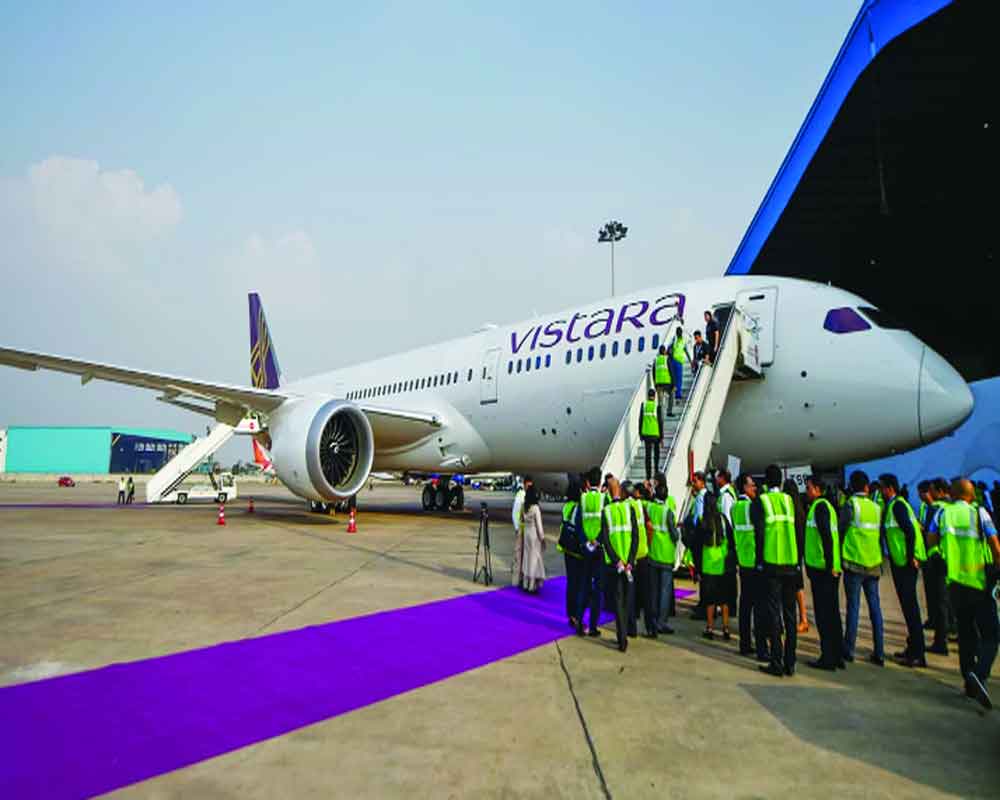Vistara faces flight disruptions due to crew shortage; DGCA demands daily updates
Flight operations of Tata Group’s Vistara Airlines, which has earned a reputation for its premium services and reliability in the Indian aviation sector, have of late been marred by cancellations and delays. Vistara, a joint venture between Tata Sons and Singapore Airlines, has attributed the disruptions to a shortage of flight crew. Passengers have been left stranded and inconvenienced, with some facing difficulties in rebooking their travel plans at short notice. Vistara’s troubles come at a time when the aviation sector is recovering from the impact of the pandemic, with domestic travel demand showing signs of revival. The airline industry has been navigating a delicate balance between scaling up operations to meet growing demand while managing operational constraints and ensuring passenger safety. In response to the crew shortage crisis, Vistara has assured passengers that it is working diligently to address the issue and minimise disruptions to flight services. The airline is actively recruiting and training additional crew members to augment its workforce and improve operational resilience. For passengers affected by flight cancellations and delays, Vistara has offered options for rebooking or refunding tickets, along with assistance in making alternative travel arrangements. The airline has reiterated its commitment to prioritising customer satisfaction and minimising inconvenience caused by the disruptions.
The Directorate General of Civil Aviation (DGCA) has stepped in, demanding daily reports from the airlines regarding the status of flight operations, crew availability and measures taken to mitigate the impact of disruptions on passengers. The crew shortage issue highlights the challenges faced by airlines in managing their workforce in the midst of evolving dynamics of the aviation industry, particularly in the wake of the COVID-19 pandemic. Domestic flights have been reporting disruptions, including layoffs, furloughs and changes in travel demand patterns, much to the consternation of passengers. The incident underscores the importance of effective workforce management and contingency planning for airlines to ensure smooth and uninterrupted flight operations. As the aviation industry strives to rebound from the challenges posed by the pandemic, maintaining a robust and adequately trained workforce is critical to meeting the evolving needs of passengers and sustaining growth. This is what DGCA must be concerned about and has taken up on priority. As Vistara endeavours to overcome the crew shortage crisis and restore normalcy to its flight operations, the incident serves as a reminder of the complex and dynamic nature of the aviation industry. Effective collaboration among airlines, regulators and stakeholders is essential to address challenges promptly and ensure the seamless functioning of the aviation ecosystem.


























